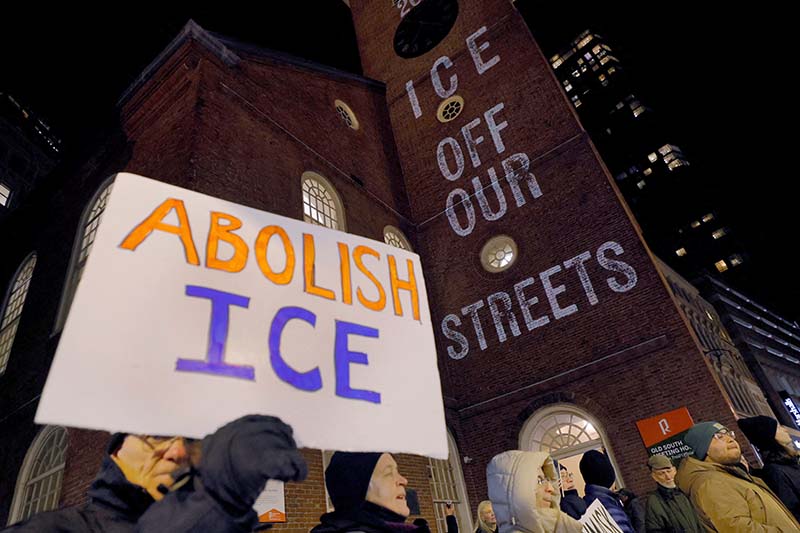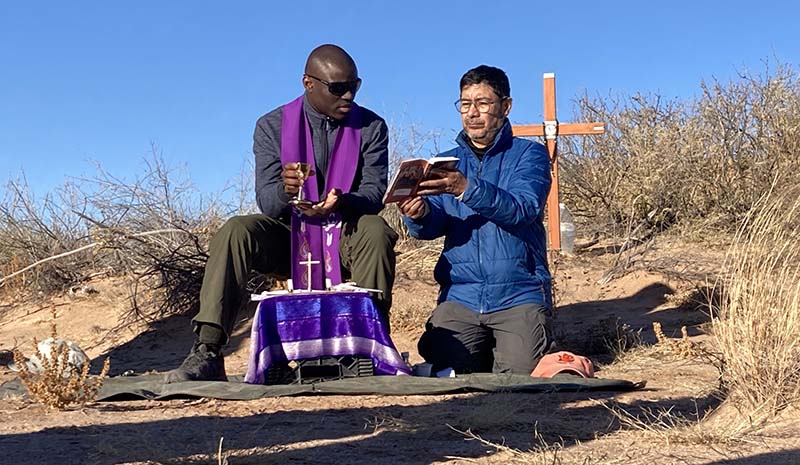Friday, June 20, 2025 | 2 a.m.
Editor's note: Este artículo está traducido al español.
Caren Yap’s vision to cap the number of patients a nurse could see in a shift started at a young age.
While working at a home care facility as a student at Southeast Career Technical Academy, Yap observed some patients’ care being prioritized over others due to staffing shortages. It left a lasting impression.
Yap, a first-generation Filipina immigrant, used that experience as inspiration for a two-year effort alongside the SEIU Local 1107 nursing union to create legislation introducing safe staffing ratios for nurses in Nevada hospitals. Senate Bill 182 passed both the state Senate and Assembly but was vetoed last week by Gov. Joe Lombardo.
The proposal called for establishing maximum ratios based on patient acuity in hospitals located in counties with populations of at least 100,000 — Clark and Washoe — and licensed for more than 70 beds. Yap and others behind the bill said it would have improved patient and nurse safety.
Lombardo disagreed.
“While I support efforts to promote safe, high-quality patient care, SB 182 imposes a rigid, one-size-fits-all staffing mandate that fails to reflect the complex and ever-changing realities of health care delivery,” Lombardo wrote in his veto letter. “Because SB 182 would limit hospitals’ ability to adapt to real-time patient needs, impose significant new regulatory burdens and risk reducing access to care — especially in already vulnerable communities — I cannot support it.”
The bill additionally lacked support from Nevada hospitals because it failed to address “the many challenges we face,” Patrick Kelly, president and CEO of the Nevada Hospital Association, wrote in a letter to the state Senate’s Health and Human Services Committee.
Kelly said the bill would increase the cost of health care by requiring hospitals to hire nearly 1,500 more nurses to meet the bill’s staffing ratios. Those positions would most likely be filled by traveling and contract nurses, and add an additional burden on hospitals currently trying to close the state’s existing shortage of nurses. He also wrote that SB 182’s “one size fits all” solution would exacerbate the difficulties recruiting nurses, and “fails to account for the dynamic and unpredictable nature of health care,” such as nurse call-offs, departures, patient acuity in units and patient surges.
“This legislation poses significant risks to our health care delivery system, burdens a variety of other health care providers and, most importantly, threatens to harm access to care for Nevadans,” Kelly wrote. “Nevada’s nursing shortage is severe. SB 182, while well-intentioned, will do more harm than good to Nevada’s fragile health care delivery system. The bill fails to address the many challenges we face.”
The legislation mirrored a similar law in California passed 20 years ago, making it the only state with an enforceable staffing law, medical union National Nurses United said. Yap, who has a business degree from UNLV and is pursuing a master’s in public policy from Harvard, spent a year and a half interviewing around 50 medical professionals and working with SEIU Local 1107 to get a bill drafted.
The proposal also would have set a maximum number of patients that may be assigned to a certified nursing assistant within a hospital operating 70 or more beds. It was sponsored by state Sen. Rochelle Nguyen, D-Las Vegas.
Nguyen and her bill collaborators said the legislation was about improving nurse retention and well-being as well as patient safety. She believed it would help reduce nurse burnout while also increasing transparency from hospitals and worker protections.
The governor echoed many of the concerns brought up by the bill’s opposition, including that it would add “layers of bureaucracy that could hinder rather than help patient care” and “force hospitals into impossible decisions — such as reducing services or turning away patients.” He believes hospitals should keep their ability to create staffing plans based on their patient populations, clinical environments and workforce conditions, adding that many health systems already use “collaborative approaches” specific to their needs.
SEIU Local 1107 in a statement said that Lombardo is “putting profits over patient safety” and that he “chose to side with the health care CEOs and big corporations that lobbied hard against our bill.”
“Our hospitals are refusing to provide the staffing we need to give our patients the care they deserve, which is causing severe exhaustion, moral injury and turnover among hospital workers,” the union wrote. “Gov. Lombardo’s shameful veto matters to all Nevadans — Republicans, independents and Democrats — because everyone will need hospital care for themselves or their loved ones. The governor’s refusal to fix the problems plaguing Nevada’s health care system will be remembered as we move toward the governor’s election next year.”
Yap said she’s committed to working on this issue in future legislative sessions. She explained that, after hearing from friends in the medical field and nurses she interviewed, it’s become an issue that she can’t ignore.
“To me, this is a passion project that I will continue doing as many legislative sessions as I have to in order to get better working conditions for our community and better patient outcomes,” Yap said. “I will be up in (the Legislature) for as many times as it takes to get it passed and I hope that a future governor or Gov. Lombardo can really see the value in passing something that the community really wants, regardless of partisanship.”
.png)








 English (US) ·
English (US) ·